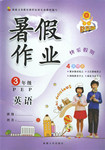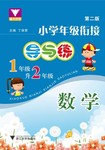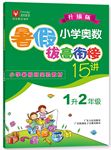题目内容
5.阅读下面短文,在空白处填入1个适当单词或括号内单词的正确形式.College students in China won't have to fear (61)failure ( fail) as much when launching their own businesses under a new Ministry of Education regulation.
According to the new rules,students who want to start their own business can apply to lake a gap year between finishing high school and starting college.Students who (62)have started.(start) their college studies can also apply (63)forleave for several semesters and their period of schooling (64)can be extended (extend)(65)When/Ifthey are ready to return to their studies,they will also be able to change their majors.
Experts think the new regulation will (66)effectively (effect) relieve the pressure on college students by encouraging and supporting more of them (67)to try(try) starting businesses.
College graduates now face severe competition for jobs,as the number of (68)thosewho are entering the job market grows each year.Last year saw (69)arecord high of 7.65million graduates.
Professor Ma Huaide,vice-president of CUPL,added that colleges should set up a special body to provide (70)better (good) services and guidance to students who want to start a business.
分析 本文主要介绍根据教育部的相关规定,大学生在上大学前或已在读的大学生可以申请休学来创业,当他们准备回到学校学习时,也可以改换专业.这样做是为了鼓励和支持他们创业,减轻他们的压力.
解答 61.failure 考查名词.fear是及物动词,后缺少宾语,用动词fail的名词failure作其宾语.
62.have started 考查动词时态.根据句意:已经开始大学学习的学生也可以申请几个学期的假期.用现在完成时态.
63.for 考查固定搭配.apply for意为"申请",是固定搭配.
64.can be extended 考查动词语态.period与extend之间是动宾关系,要用被动语态,且表示一种可能性,用含有情态动词can的被动语态.
65.When/If 考查连词.根据句意:如果他们准备回来学习,他们也可以改变专业.用连词When/If.
66.effectively 考查副词.relieve是动词,要用副词修饰,名词effect的副词是effectively.
67.to try 考查动词不定式.support sb.to do sth.意为"支持某人做某事",后接动词不定式作宾语补足语.
68.those 考查代词.分析句子结构可知这是一个定语从句,先行词用those.
69.a 考查冠词.record是可数名词,单数形式前加不定冠词a表示泛指.
70.better 考查形容词比较级.根据句意:提供更好的服务和指导给那些想要创业的学生.用good的比较级better.
点评 在一篇200词左右的语篇(短文或对话)中留出10处空白,部分空白的后面给出单词的基本形式,要求考生根据上下文填写空白处所需的内容或所提供单词的正确形式,所填写词语不得多于3个单词.要做好语法填空题,理解短文是解题的前提,扎实的词汇、句型和语法知识是基础,英语国家的背景知识是必要的补充.考生须灵活运用语法知识,如单词词性、单词时态、名词单复数、连接词、代词、冠词等判断各空白处应填写的内容.答完后,还要通读全文,核对所填单词形式是否正确,是否符合语境.

 学练快车道快乐假期暑假作业新疆人民出版社系列答案
学练快车道快乐假期暑假作业新疆人民出版社系列答案 浙大优学小学年级衔接导与练浙江大学出版社系列答案
浙大优学小学年级衔接导与练浙江大学出版社系列答案 小学暑假作业东南大学出版社系列答案
小学暑假作业东南大学出版社系列答案 津桥教育暑假拔高衔接广东人民出版社系列答案
津桥教育暑假拔高衔接广东人民出版社系列答案 波波熊暑假作业江西人民出版社系列答案
波波熊暑假作业江西人民出版社系列答案| A. | when | B. | who | C. | where | D. | which |
| A. | stare | B. | to glance | C. | to stare | D. | glance |